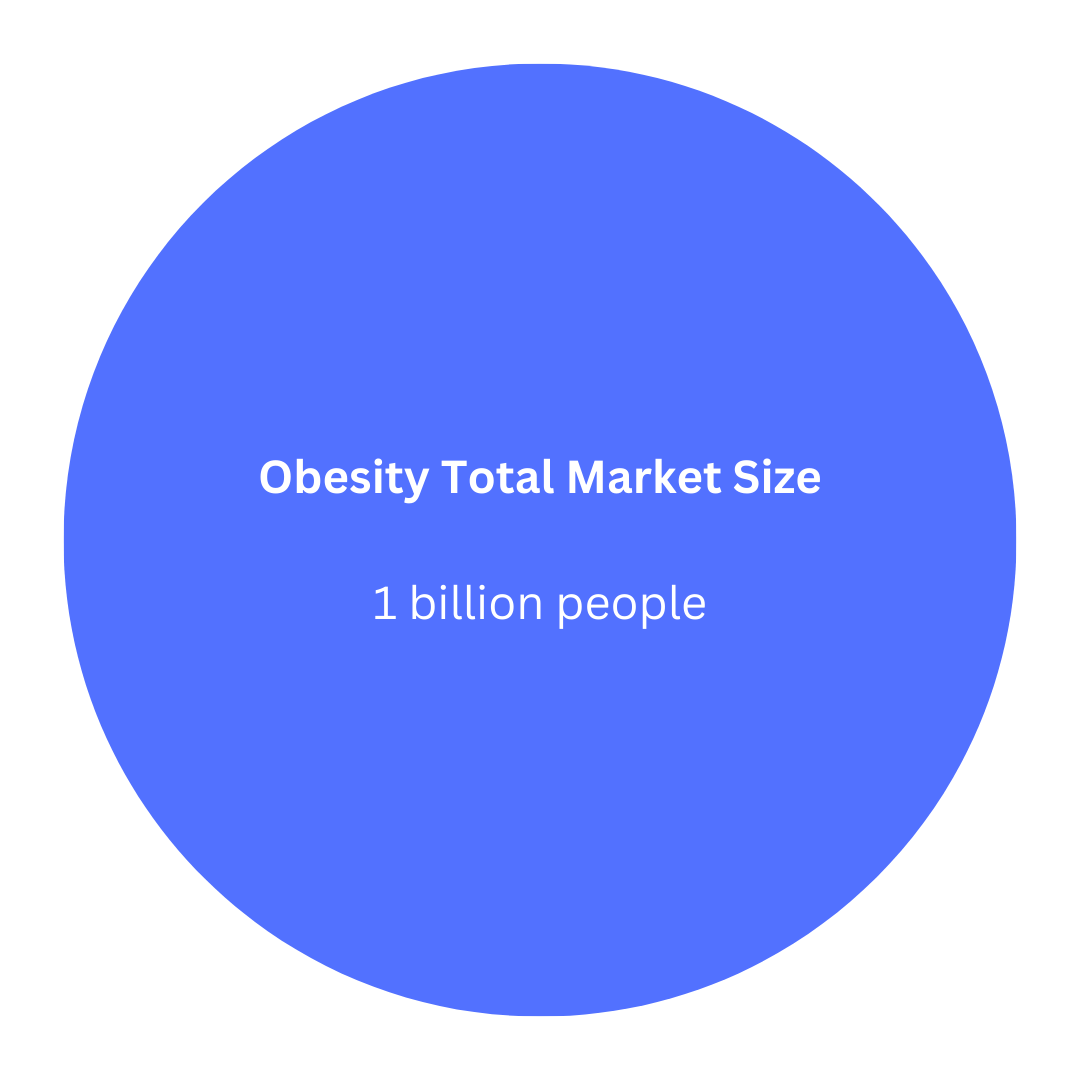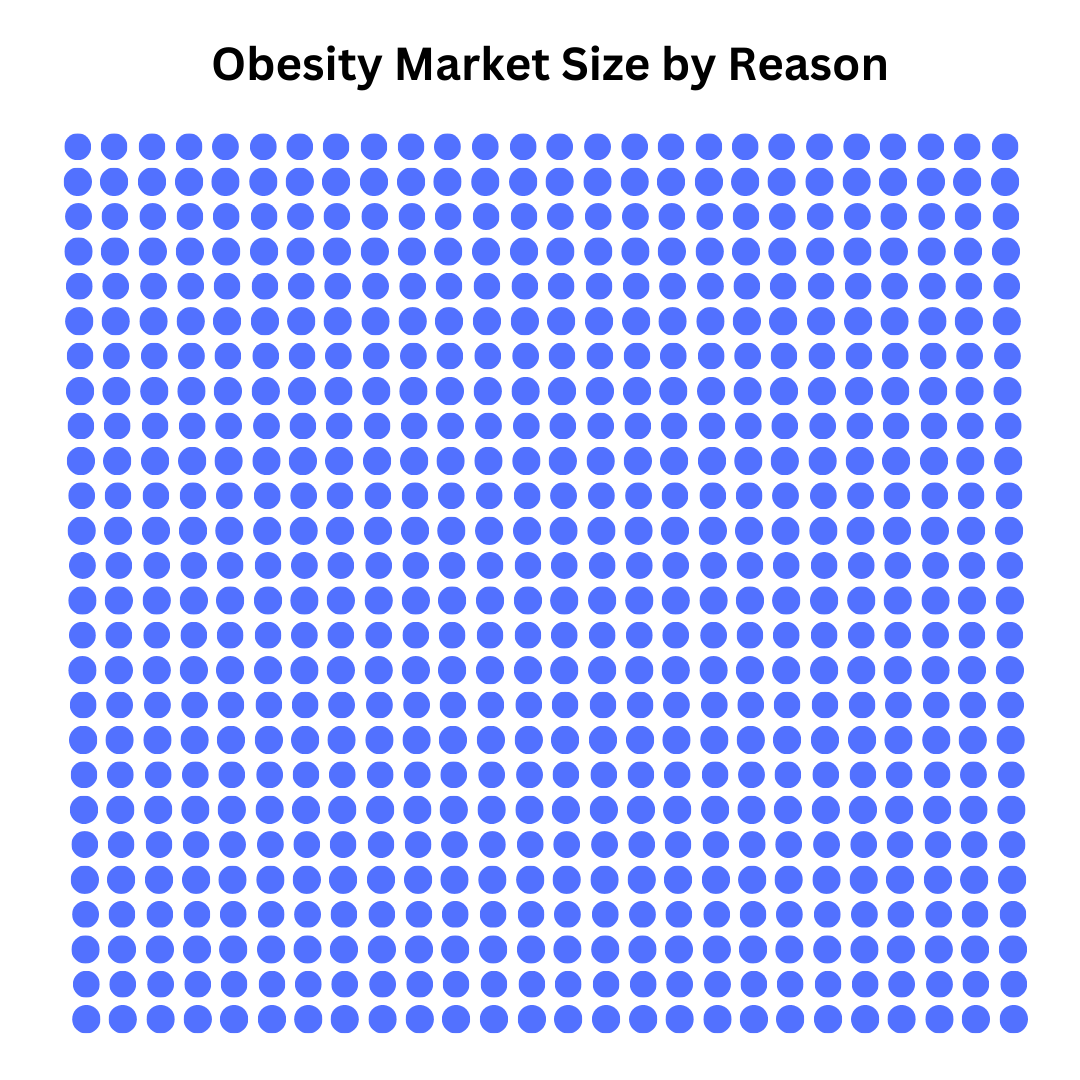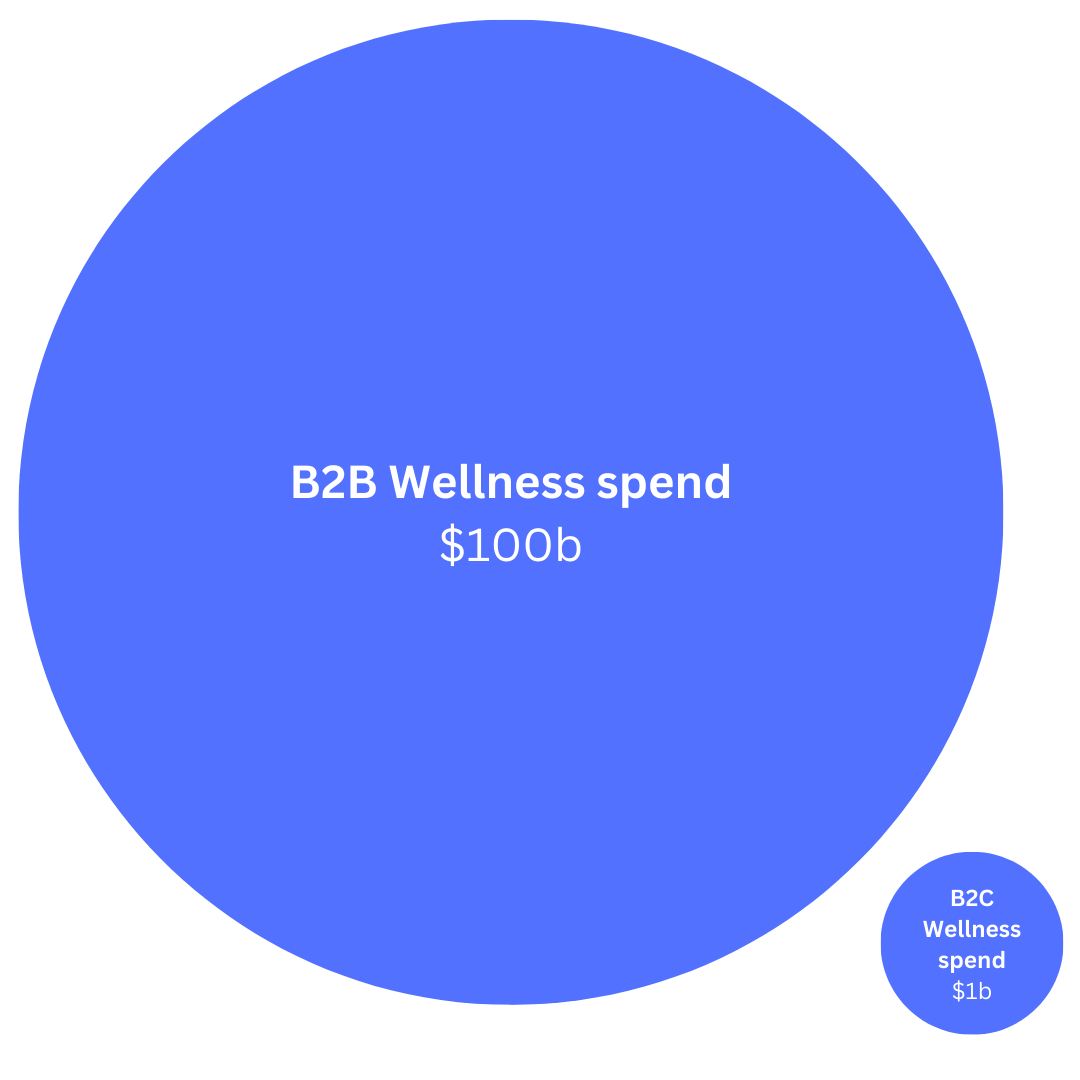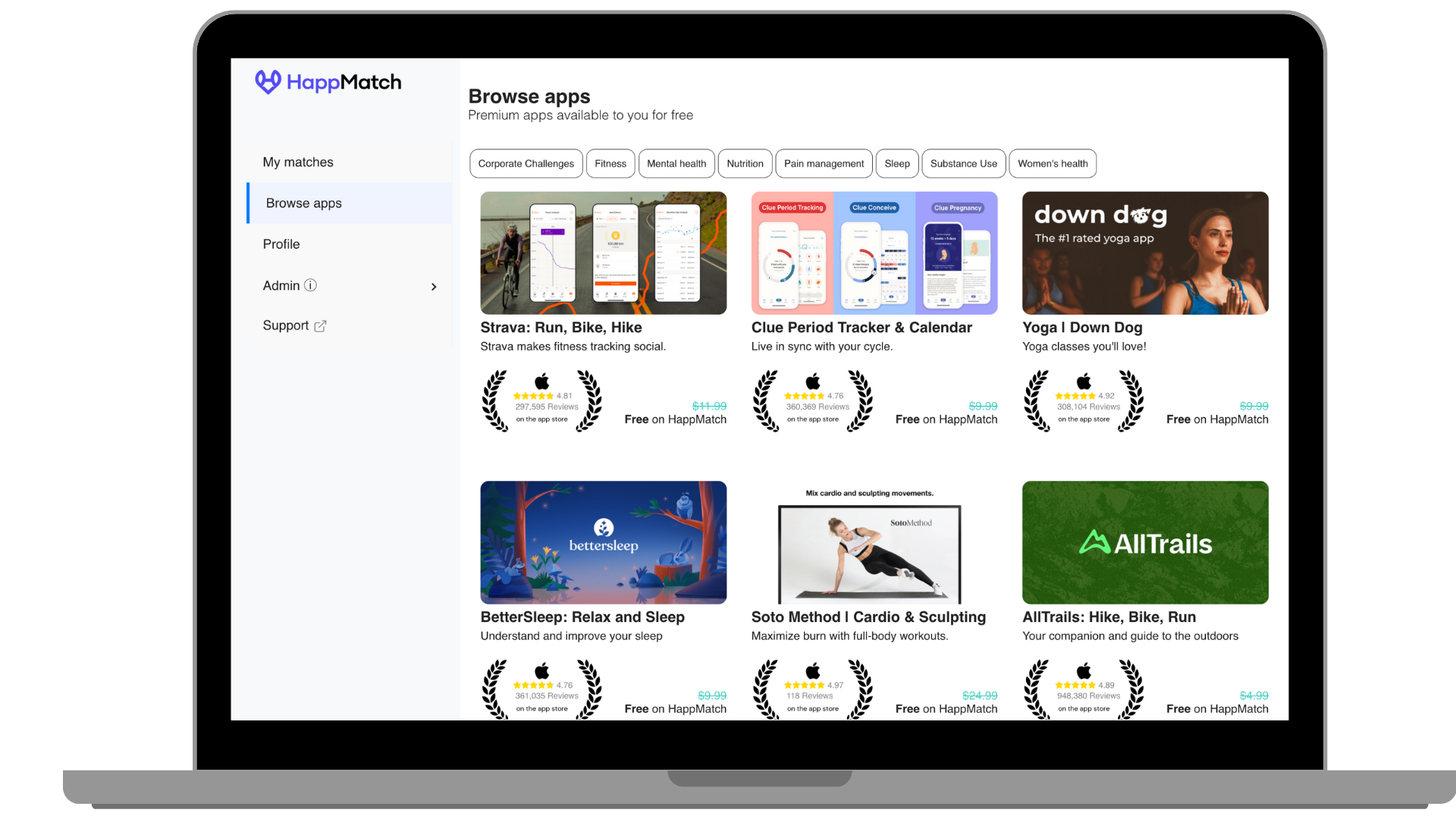The future of digital wellness needs to be small
The current landscape of digital self-serve wellness apps (the ones you download, pay for, and use on your own without meaningful 1:1 attention) has a problem. A big problem.
They are too big.
Here is a short list of the major players and their total estimated money raised:
Noom - $650 million
Calm - $218 million
Peloton - $1 billion
Omada - $450 million
So what's wrong with that?
The Problem
When a company takes on that much money in funding, often, their requirements for growth becomes almost insatiable. While it's not entirely unreasonable on the part of the investors (in Noom's case there are over a billion obese people on the planet), the problem lies in the downstream effects.
This grow-at-all-costs approach in digital wellness creates two fundamental problems:
1. It forces the products to be less effective
2. It stifles innovation in the digital wellness space writ large
Let me explain.
Caveat I have zero ethical or moral qualms with large wellness companies, or the investors that back them. Here I am simply arguing that the same high growth approach that changed the world for the better with the Apples and Amazons of the world, is not effective for wellness. |
The plague of one-size-fit-all products
Here's how I imagine Noom and it's investors see the market. To be charitable, maybe they break this down into three or four categories (e.g. Diabetes, non-diabetes, men, women).

When you need millions of users on your app to make the financial math add up, your app needs to be relevant to hundreds of millions of people. The only way to accomplish this is to build to the lowest-common denominator. And not to pick on Noom, this is true of all large venture-back wellness tools. Meditation for everyone, sleep health for everyone, fitness for everyone.
Individual wellness is exactly that, individual. Every single person with obesity has a different mosaic of reasons for why that's the case. To try and effectively address this long tail in one product is, actually, impossible. All of a sudden the weight loss app needs to become an app for anxiety, and trauma, and cardio, and strength and so on.
When you see the obesity market for what is is, like the image below, the case for a large, monolithic product starts to breakdown. It's a classic disconnect between what's best for a consumer and how the industry is structured.

Large players create a vacuum in the B2C space
Like a blackhole in the center of a galaxy, these well funded behemoths gobble up the consumer market and spit it out. These products, at their core are acquisition machines not outcome machines, spending whatever it takes to to get users to start free trials. This has a few knock on effects:
Ad spend dominance
The only names people know are the biggest, mostly because they out spend everyone else in the space. This means smaller players can't even get in front of users unless they want to pay exorbitant prices to compete in the free market of digital advertising. Even if there was a better product for a user, they wouldn't know out about it.
Scorched earth
When users have bad one-size-fit-all experiences, it's not only that one specific app gets burned, the entire digital wellness space earns a bad reputation. Wellness app churn is massive, in many cases 95% of users are gone in 90 days. And it's obvious why, the products aren't designed for them, in fact, they're designed for no one in particular.
So while these machines are burning through cash churning out users, they are leaving people skeptical and hesitant to try a product that might be a better fit.
The B2B wellness oligopoly
While the dominance in the B2C market causes problems, large wellness players have set their sights on B2B. The reason for that is clear, there are dollars being spent. Similar to providing insurance, corporate America has realized offering wellness tools to their employees increases retention. This has ushered in a golden age of wellness spend estimated at a rate of 100:1 when compared to consumer spend.

More one size fits all forces
Similarly to the effects of funding, competing in the B2B corporate wellness industry can spell trouble for a wellness product. These massive annual contracts often rely on one metric, Percent Employee Utilization. In the buying process companies are constantly estimating utilization rates, so they want products who can serve a high number of employees. Similarly, after a product is rolled out, contract renewals rely on this metric. The more employees that the app can be relevant for, the easier it is to sell and stay with an organization. This is another example of a perverse incentive that pushes the product to be more one-size-fits-all.
Walled garden
Large wellness tools love the B2B space because the cost to play is extremely high. You need an experienced B2B Enterprise sales team, and a product large enough to appeal to a diverse group of people. This reality prevents these dollars from flowing to smaller, more personalized apps, further suffocating innovation.
The Opportunity
There is a huge opportunity for self-serve digital wellness tools. Everywhere you look there is a health crisis; obesity, mental health, women's health and so on. Within each of these categories exists a long tail of needs.
Digital wellness tools have the potential to fragment, from ten large tools into thousands of highly specific, single use case tools. Everyday it becomes easier for people to create digital products and more and more expert providers are looking to take an entrepreneurial journey.
And it's starting to happen:
- -Three Doctors of Physical Therapy based in Santa Monica, CA built Prehab. It gives users a library of best-in-class physical therapy guides for the most common injuries?
- An ex-investment banker quit her job to become a NASM Certified Personal Trainer and launched SotoMethod, a women’s focused digital core strength program.
- A world-renowned sleep scientist teamed up with software engineers to build BetterSleep a science backed sleep app.
- A Sport & Exercise Science expert created Fit For Golf, strength training designed from the ground up for golfers.
Strength training apps for menopause. Mental health for new dads. Weight loss for welders. When allowed to flourish, there can be an app for everyone, helping people at scale.
The future is not big- it's small.
So how do you catalyze this market? How do you play a role in this digital wellness revolution?
The Solution
Marketplaces are forces for good. They level the playing field, and let the best product win.

HappMatch is the first marketplace dedicated to helping self-serve digital wellness tools prosper by giving them access to corporate wellness dollars. We make it easy for companies to give their employees access to expert created, use-case specific wellness apps.
Huge variety, one platform
Like a private app store for your company, HappMatch has a tool for every employee. Instead of paying and managing multiple products, or not buying any at all, HappMatch is a one-stop-shop for corporate wellness.
We help employees find the right tool
Our employee onboarding uses an assessment to help them decide which wellness category to consider starting with. In a sea of choices, it's important to quickly find the highest leverage tool for you. And as we add more apps, we can communicate directly to the employees that it's relevant for.
How HappMatch works
Companies subscribe on a month-to-month basis, and employees are granted instant and unlimited access to every app on the platform. Just point, click, and subscribe. These are vetted, premium, single use case digital wellness tools. Every app is free to employees, even though they usually cost upwards of $20 per month outside of HappMatch. Admins also have access to a reporting suite that allows them to measure employee utilization, although they are never able to see individual app choices.
Affordable, especially for the smallest companies
Since HappMatch doesn’t have a massive sales team, and because we partner with consumer apps, we can offer price points that fit into the budget of even the leanest organizations. Our commitment is to keep our prices as low as possible so we can help as many employees as possible. Start for as low as $3.25 per employee per month.
We are a catalyst for the digital health revolution
We fundamentally believe that there should be a wellness app for every person and every use case. Strength training for menopause? Mental health for gamers? Budgeting apps for welders? More companies subscribing to HappMatch directly fuels this digital health revolution, incentivizing more experts to create more tools for the people that need them.
Empower your team now
We are ushering a new era of corporate wellness. We connect employees to the expert creators who are working to build the next generation of tools, just for them. An app, for everyone.
View the platform, our apps, and our admin reporting tools for free, right now, at happmatch.com.


